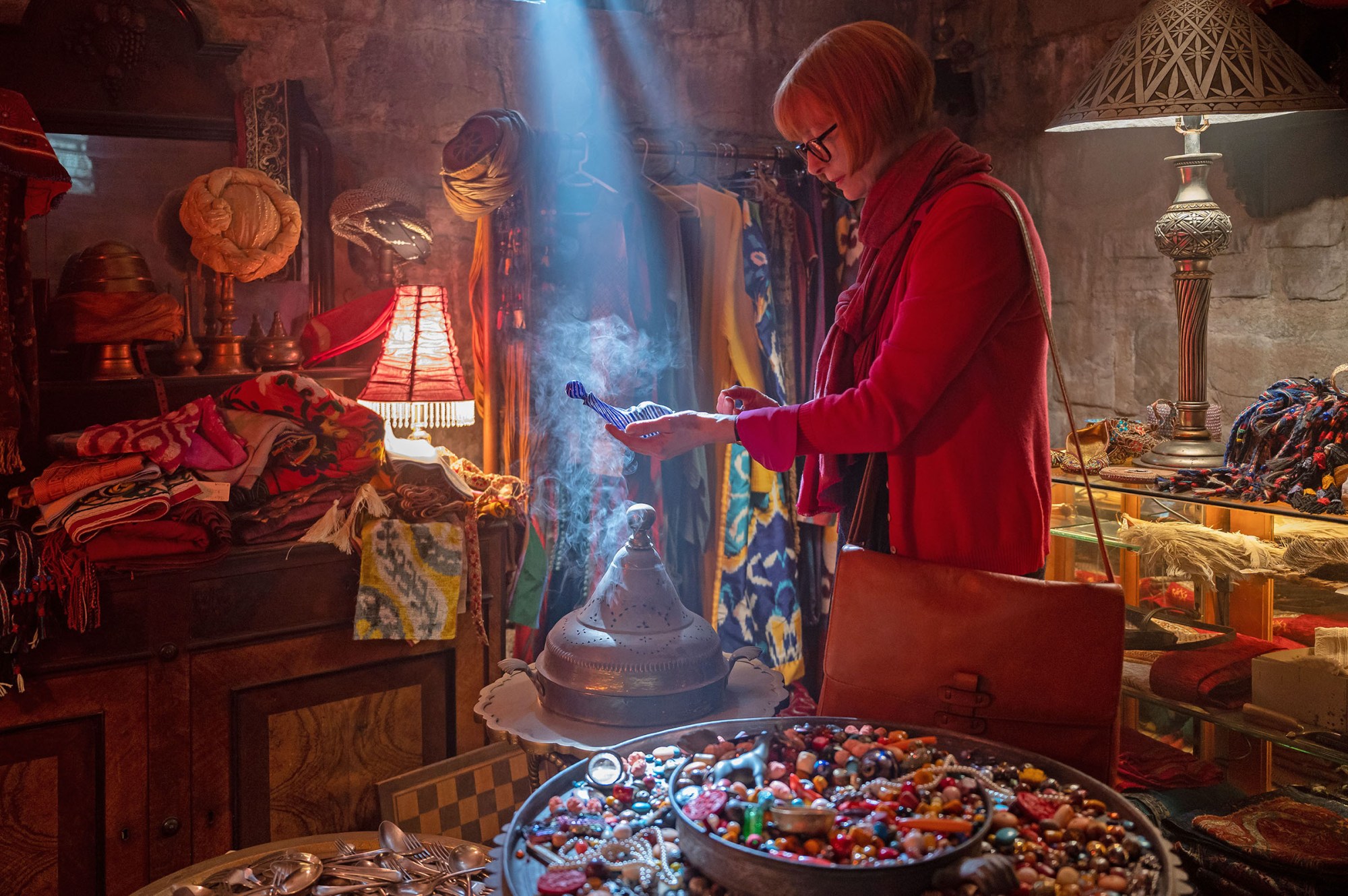
- Film
“Three Thousand Years of Longing” with Idris Elba and Tilda Swinton
Three Thousand Year of Longing, which premiered at the Cannes Film Festival this year, is directed by George Miller from the 1994 short story The Djinn in the Nightingale’s Eye by A.S. Byatt, the British author of novels like Possession (1990) that was made into a 2002 film by Neil LaBute starring Gwyneth Paltrow.
Golden Globe nominee Miller, Australian director of Mad Max (1979), The Road Warrior (1981), Mad Max Beyond Thunderdome (1985) starring Mel Gibson, and Mad Max: Fury Road (2015) with Charlize Theron, is currently filming Furiosa with Anya Taylor-Joy.
He liked the story, Miller said in the production notes, because “it seemed to probe many of the mysteries and paradoxes of life so succinctly.”
The movie, set in the present day during the COVID-19 pandemic, is about a British narratologist played by Tilda Swinton, who specializes in interpreting fairy-tale stories through the ages. While attending a conference in Istanbul, she purchases an antique glass bottle in a bazaar and while cleaning it, like from Aladdin’s lamp, she unleashes a giant dark Genie, a Djinn, played by Idris Elba.
The unlikely couple, wearing white bathrobes in a hotel room, start a conversation in Greek, before he learns to speak the English language. He offers her three wishes in exchange for his freedom but explains that she can’t ask for eternal life because she’s a mortal while he’s immortal, nor can he end all suffering. When she refuses to name her deepest wishes, he then proceeds to tell her in flashback the story of his life over three millennia, including his friendship with the Arabian Queen of Sheba, wife of King Solomon from the Hebrew Bible, and his residence at the court of Suleiman the Magnificent, Sultan of the Ottoman empire.
The film transports us visually into a magical Islamic world out of the Arabian Nights, the collection of 1,001 Middle Eastern folktales as told by Scheherazade, and illustrates the passionate and tragic love of the genie for three women through the centuries.
Elba said to the press in Cannes: “I never considered the genie as a hero. Actually, he’s quite a flawed spirit in his longing. But when he meets Alithea, he is brave. He realizes that his normal procedure to grant wishes is not going to work here, so he begins to take bravery on and face his inner turmoil. We tried to make him as human as possible in a real situation, but he is transporting the audience into these fantastical stories on his journey. There’s a sense of heightened reality when you look at Sheba’s world, at Solomon’s beautiful musical instrument and these magical creatures, but it’s all part of his reality.”
Swinton explains in the notes that her intelligent character, Alithea, “is tracing the many different human stories all over this earth, figuring out similarities, the through lines, the essential truths. She has all this knowledge, she is a specialist in being an observer, listening to, reading, understanding, writing about other people’s lives, stories and fantasies, but she’s not really a participant.” And from her relationship with the genie, “she learns about desire, and that’s her evolution.”
Miller’s daughter, Augusta Gore, who co-wrote the script with her father (he was married to her mother Sandy from 1985 to 1992), said to the press in Cannes about the film, “It’s about the interplay between science and myth, between technology and magic, between the ideas of immortality and what it means to live a mortal life, with love, desire and fear and what we go through all the time.”
The film version omits the stories told by Alithea in the novella, such as that of Patient Griselda from The Canterbury Tales by Geoffrey Chaucer. It does include her realization that, after her husband left her for a younger woman, the middle-aged professor felt happiness like “a prisoner coming out of a dungeon.” When she finally expresses her first wish, the movie evolves into a woman’s fantasy of timeless romantic love.
When asked by the press in Cannes about what his three wishes would be, Miller said, “The whole point in making wishes is that they must be earned in some way. It’s one thing to want to end the turmoil and the chaos of life that we are seeing all around and is part of our human narrative. But it’s another thing to effectively do something about it. The heroic figures are the agents of change, but it requires that people relinquish their self-interest for the greater good. That’s the heroic gesture.”

